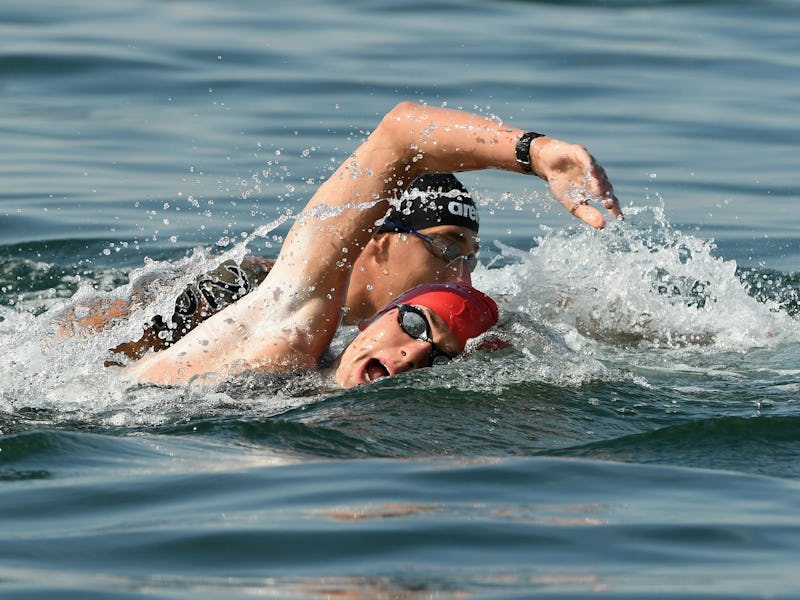Olympic Pool Currents Gave Some Swimmers an Illegal Advantage
Scientists warned of the problems as far back as three years ago.

For swimmers at the 2016 Rio de Janeiro Olympics, staying in the right lane might mean the difference between gold and going home.
Researchers analyzing the Olympic swimming pool found evidence that shows certain lanes in the pool to have a much more helpful current than others, improving swimmers’ times if they’re in a favorable lane. To make matters even worse, this might not be the first time that athletes have been given this particular advantage during the games.
This isn’t the first pool-controversy at the Rio games. Along with being a putrid-smelling green shade and the reminder that Michael Phelps would totally pee right next to you in a swimming pool, the researchers say the pool’s design gives certain athletes a possible edge in certain lanes of the pool.
The research, published this week in a report by the Wall Street Journal, says that a major design flaw has helped athletes win matches due to changes in the current of each lane. A company named Myrtha crafted pools for both this year’s Olympics and the 2013 world championships in Barcelona, Spain. Researchers say that similarities between the two competitions’ results sparked curiosity.
RIO DE JANEIRO, BRAZIL - AUGUST 13: Michael Phelps of the United States competes in the Men's 4 x 100m Medley Relay Final on Day 8 of the Rio 2016 Olympic Games at the Olympic Aquatics Stadium on August 13, 2016 in Rio de Janeiro, Brazil. (Photo by Rob Carr/Getty Images)
Director Joel Stager of Indiana University’s Councilman Center for the Science of Swimming led his team as they compared results. The research reveals that in both tests, swimmers who took part in the 50-meter freestyle and swam in lanes five through eight received a slight speed boost, while the first four lanes had nearly half that advantage. Despite his team’s efforts, Myrtha has brushed off accusations and continued forward this year in Rio. Myrtha Chairman Trevor Tiffany claims that the company complied with testing ahead of the competition. “We were required to do tests to show that there was no movement of water, and the tests were conclusive that there was no movement of water,” Tiffany told WSJ. “If we saw there was a current, we’d have done something about it.”
Stager calls the results of the research “horrific.” His team has already pointed out the stark difference in times when athletes switched out from lanes five through eight in later competitions, and even notes that in the finals, five of the six medalists swam in lanes four through eight. It’s not clear whether the Olympic committee will do anything in reaction to this, especially because of past research yielding no definite results from the side of the games.